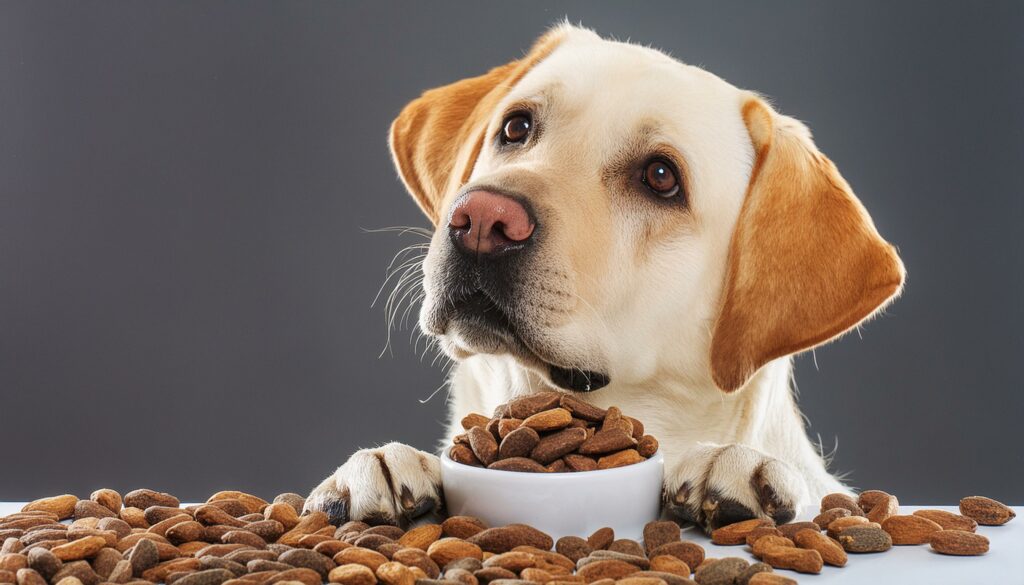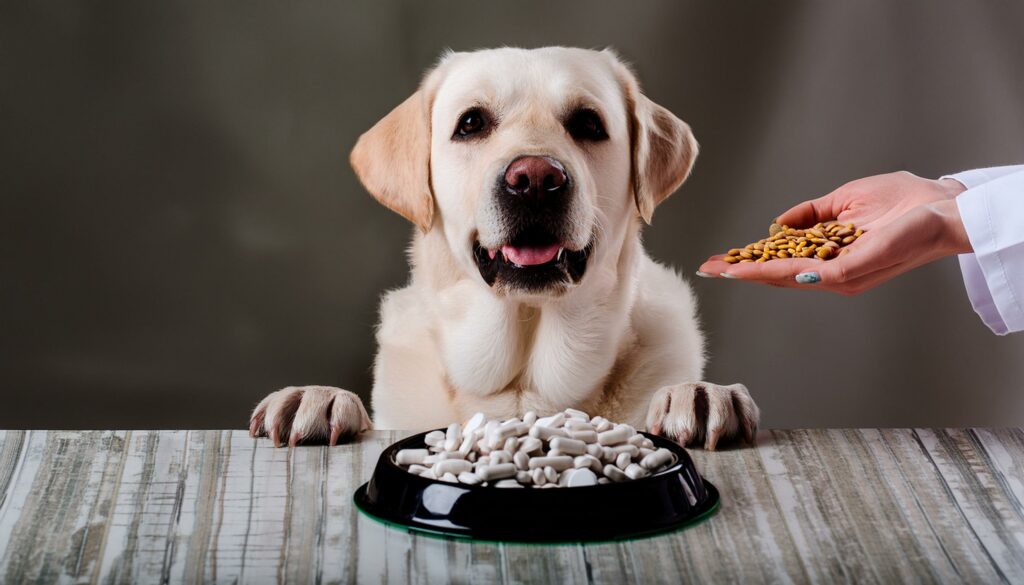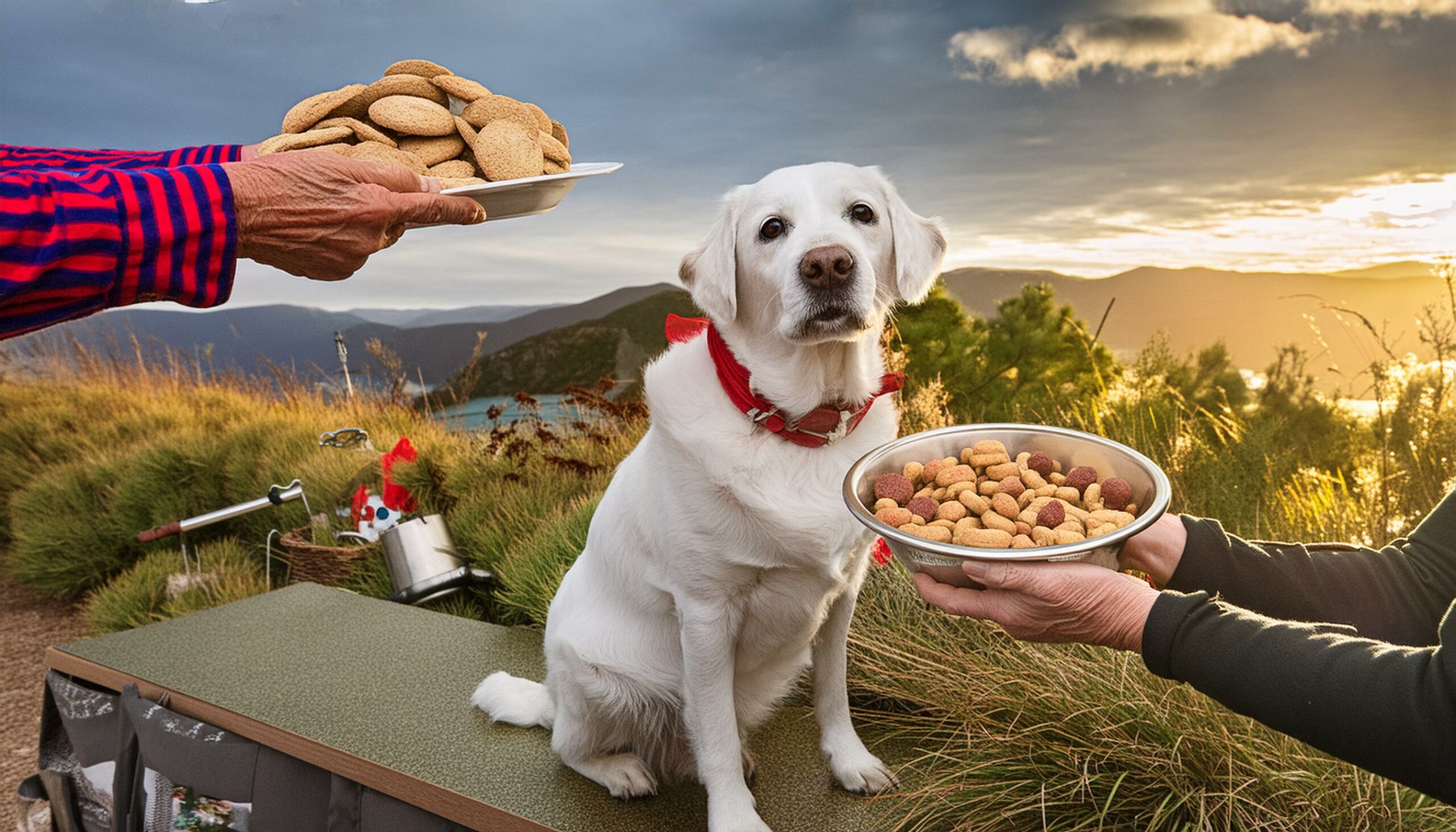Labradors, with their playful nature and wagging tails, are not only beloved companions but also enthusiastic eaters. As a Labrador owner, understanding what foods your furry friend loves and what’s best for their health is crucial. In this comprehensive guide, we’ll delve into the dietary preferences of Labradors and provide insights into creating a balanced and nutritious diet for your canine companion.
Understanding Labrador Dietary Needs
Basic Nutritional Requirements
Labradors, like all dogs, require a balanced diet to thrive. This diet should consist of proteins, fats, carbohydrates, vitamins, and minerals in appropriate proportions. Proteins are essential for muscle growth and repair, fats provide energy, carbohydrates offer a source of quick energy, while vitamins and minerals support overall health and immunity.
Specific Dietary Considerations for Labradors
Labradors have unique dietary needs that should be taken into account. They are prone to obesity, so it’s crucial to monitor their calorie intake and ensure they get regular exercise to maintain a healthy weight. Additionally, Labradors are predisposed to joint issues such as hip dysplasia, making foods rich in omega-3 fatty acids and glucosamine beneficial for joint health.
Foods Labradors Love

Meat: A Protein-Packed Favorite
Labradors are natural carnivores, and nothing excites them more than a meaty treat. Whether it’s lean chicken, beef, or turkey, meat provides Labradors with the essential protein they need to thrive. Opt for lean cuts to avoid excess fat intake, which can contribute to weight gain and other health issues.
Fish: Omega-3 Rich Delights
Fish such as salmon, trout, and sardines are not only delicious but also packed with omega-3 fatty acids, which are beneficial for Labradors in multiple ways. Omega-3 fatty acids support healthy skin and coat, aid in cognitive function, and reduce inflammation, making fish an excellent addition to your Labrador’s diet.
Vegetables and Fruits: Healthy Snacks
While Labradors may have a reputation for being meat lovers, many also enjoy fruits and vegetables as tasty snacks. Carrots, green beans, apples, and blueberries are all excellent choices that provide vitamins, minerals, and antioxidants to keep your Labrador healthy and happy. These snacks also add variety to their diet and can help prevent boredom.
Dairy: Tasty Treats in Moderation
Some Labradors enjoy dairy products like cheese and yogurt as occasional treats. These dairy products can be a good source of calcium and protein, but they should be given in moderation. Many dogs are lactose intolerant, so it’s essential to monitor your Labrador for any signs of digestive discomfort after consuming dairy treats.
Foods to Avoid

Toxic Foods
Certain foods are toxic to dogs and should be strictly avoided. These include chocolate, grapes, raisins, onions, garlic, and xylitol, as they can cause serious health issues ranging from gastrointestinal upset to organ failure. Be vigilant and keep these foods out of your Labrador’s reach at all times.
High-Fat Foods
While Labradors need some fat in their diet, it’s essential to avoid high-fat foods like fried meats and fatty cuts, as they can contribute to obesity and other health problems. Stick to lean meats and healthy sources of fat, such as fish and plant-based oils, to keep your Labrador in optimal health.
Empty-Calorie Treats
Avoid giving your Labrador too many treats that are high in calories but low in nutritional value, such as biscuits and sugary snacks. These empty-calorie treats can lead to weight gain and nutritional deficiencies if consumed excessively. Instead, opt for healthy, low-calorie treats like carrot sticks or apple slices.
Feeding Tips for Lab Owners
Portion Control
It’s essential to measure your Labrador’s food portions to prevent overfeeding and obesity. Follow the feeding guidelines provided by your veterinarian or pet food manufacturer based on your dog’s age, weight, and activity level. Avoid free-feeding, as it can lead to weight gain and other health issues.
Meal Frequency
Most adult Labradors thrive on two meals a day, while puppies may require three or four smaller meals. Stick to a consistent feeding schedule to help regulate your Labrador’s digestion and prevent begging behavior. Avoid feeding your Labrador immediately before or after vigorous exercise to reduce the risk of digestive upset.
Hydration
Always ensure that your Labrador has access to fresh, clean water throughout the day, especially after meals and exercise. Proper hydration is essential for maintaining overall health and preventing dehydration, particularly during hot weather or periods of increased activity.
Introducing New Foods
Gradual Introduction Process
When introducing new foods to your Labrador’s diet, do so gradually to prevent digestive upset. Start with small amounts and monitor for any adverse reactions before increasing the quantity. This gradual introduction process allows your Labrador’s digestive system to adapt to new foods and reduces the risk of food allergies or intolerances.
Monitoring for Allergic Reactions
Keep an eye out for signs of food allergies or intolerances, such as itching, redness, vomiting, diarrhea, or changes in behavior. If you suspect your Labrador is allergic to a certain food, consult your veterinarian for proper diagnosis and treatment. Your veterinarian may recommend an elimination diet or allergy testing to identify the specific trigger.
Conclusion
Understanding what foods Labradors love is essential for providing them with a nutritious and balanced diet. By incorporating protein-rich meats, omega-3 rich fish, healthy fruits and vegetables, and occasional dairy treats in moderation, you can keep your Labrador happy, healthy, and thriving for years to come.
FAQs
What should I do if my Labrador refuses to eat a certain food?
If your Labrador refuses to eat a certain food, try offering it in different forms or mixing it with their regular food. If they still refuse, it’s best to respect their preferences and choose alternatives that they enjoy.
Can Labradors eat human food?
While some human foods are safe for Labradors to eat in moderation, it’s important to avoid foods that are toxic to dogs or high in fat, salt, or sugar. Stick to dog-safe foods and treats to ensure your Labrador’s health and well-being.
How do I know if my Labrador has a food allergy?
Signs of a food allergy in Labradors may include itching, redness, or inflammation of the skin, vomiting, diarrhea, or chronic ear infections. If you suspect your Labrador has a food allergy, consult your veterinarian for proper diagnosis and treatment.
Is it okay to give my Labrador table scraps?
While it may be tempting to share your meal with your Labrador, it’s generally not recommended to feed them table scraps. Many human foods are high in fat, salt, or other ingredients that can be harmful to dogs. Stick to dog-safe treats to avoid digestive issues or health problems.
What are some signs of poor nutrition in Labradors?
Signs of poor nutrition in Labradors may include a dull, dry coat, excessive shedding, lack of energy, weight loss or gain, digestive issues such as vomiting or diarrhea, and poor overall health. If you notice any of these signs, consult your veterinarian for guidance on improving your Labrador’s diet.
